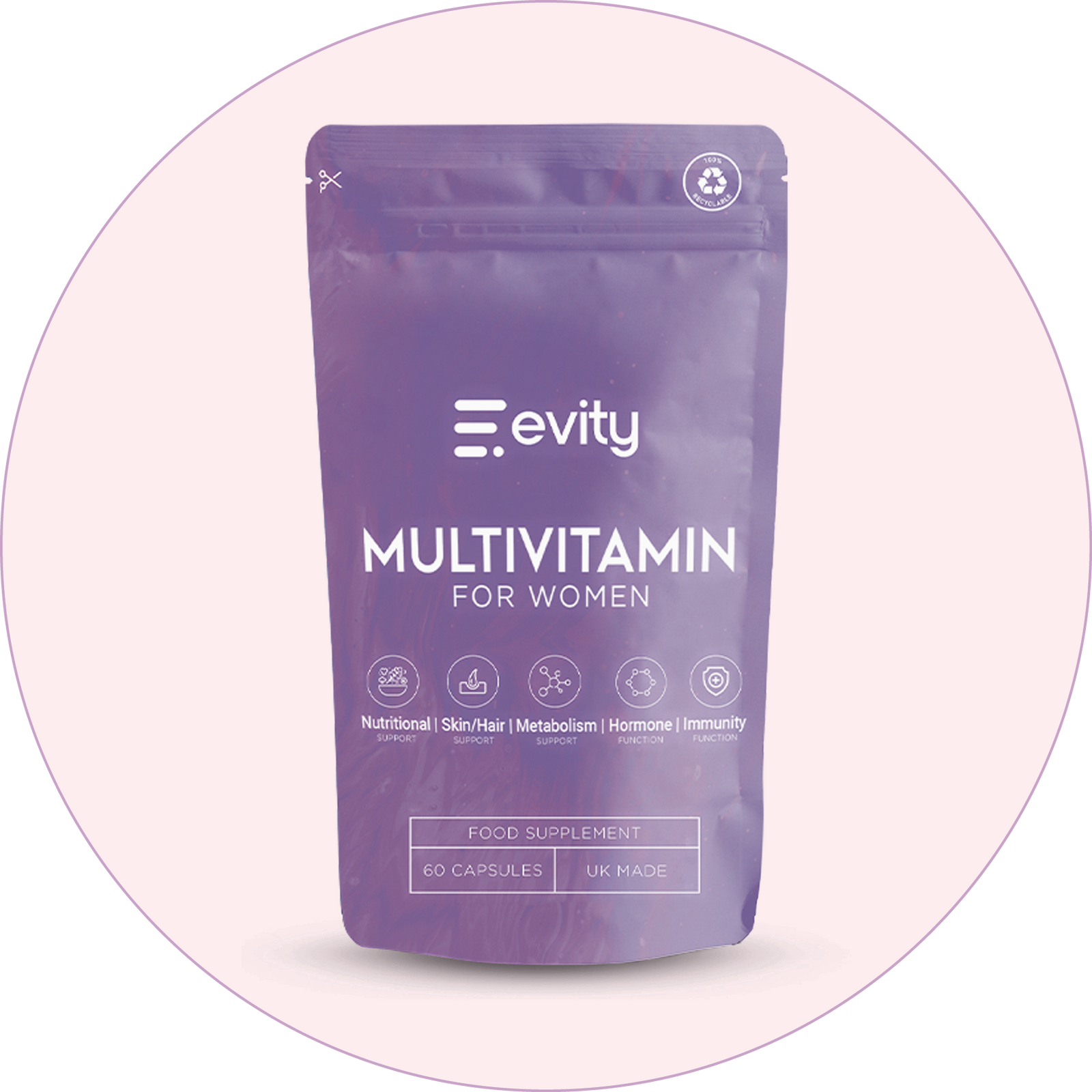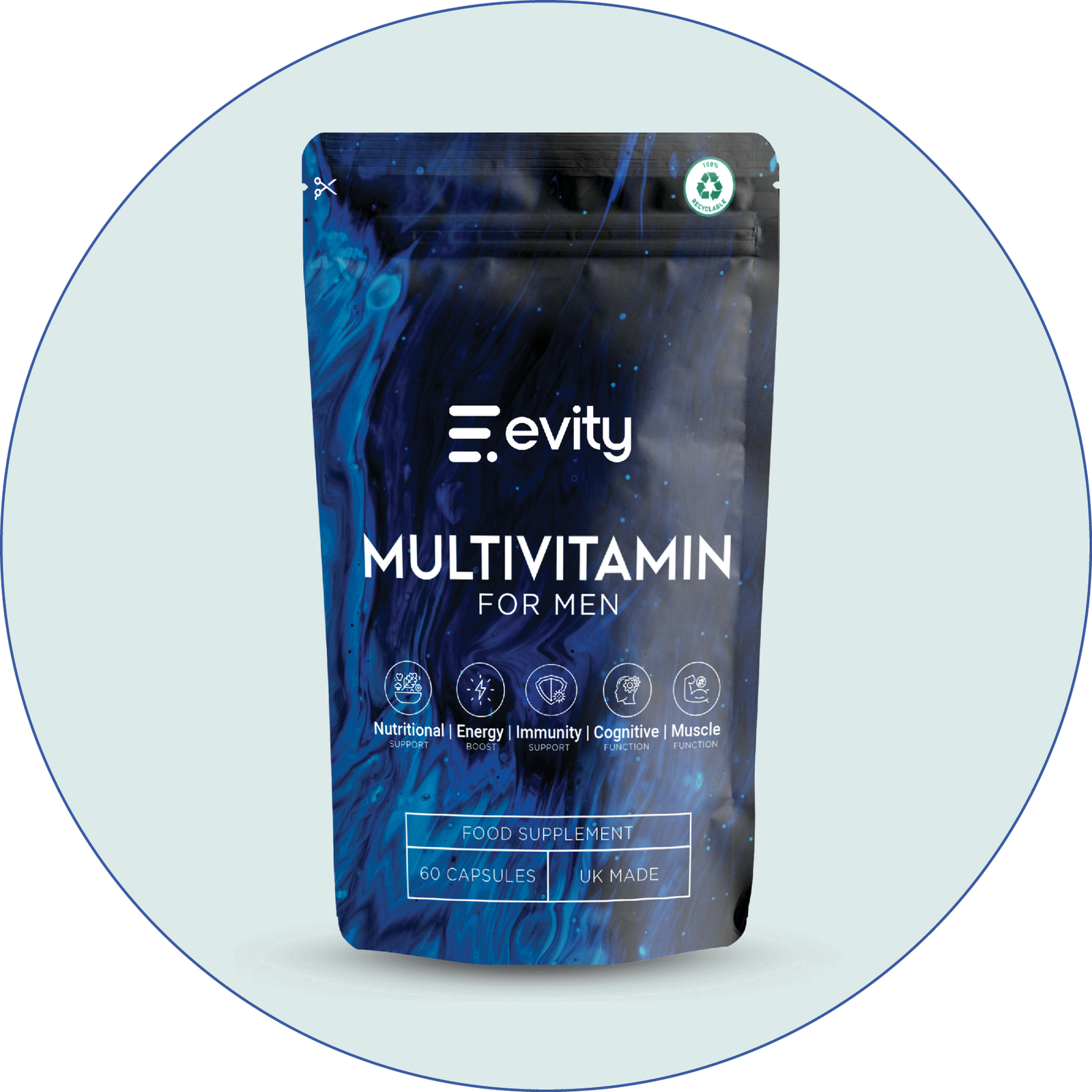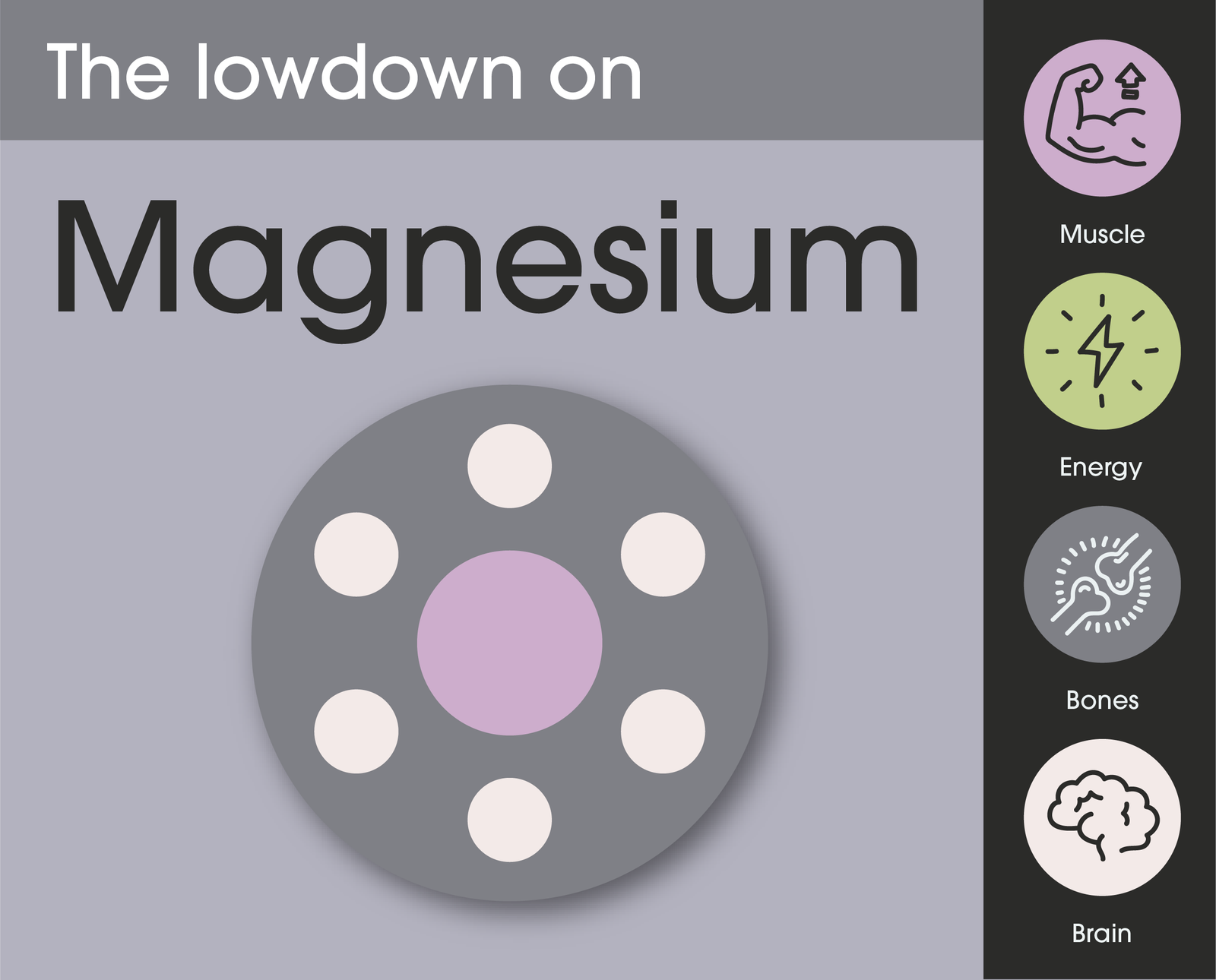
Benefits of zinc in the body
Hair, skin, nails, and bones
As zinc plays a pivotal role in growth via cell replication and protein synthesis in the body, low levels can manifest in symptoms of acne, thinning hair, mouth ulcers, eczema, dermatitis, and psoriasis (1, 2).
Reproductive health
This role in developing healthy cells would also follow zinc playing pivotal in male and female fertility (3, 5).
Immunity
The link between zinc and immunity is long-held and well scientifically established. Supplementing low levels of zinc can help support the immune system effectively fight against infection. Zinc deficiency can lead to a higher risk of infection and inflammation (3,4).
Macronutrient metabolism
Zinc is necessary for the absorption, and use of, carbohydrates, fats and proteins in the diet (1, 3).
Cognitive (brain) function
As we age, zinc plays an increasingly important role in overall brain health, fighting against ageing brain diseases (7, 8). Studies show cognitive function can improve by increasing zinc levels via supplementation (6).
Why our form of zinc is superior
Our zinc citrate has a very high 61.3% absorption rate. The citrate part may also help preserve our blood cells.
Foods rich in zinc
Meats and seafood are good sources of zinc, with oysters being the highest food source of zinc by far (9). For those on a plant-based diet, pumpkin seeds, lentils and cereals can be good sources. Although, there is evidence to suggest those on a plant-based diet may be at higher risk of low zinc levels (10).
Daily recommended intake of zinc
9.5mg per day for men (aged 19 to 64 years) and 7mg per day for women (11).
The latest research on zinc
Blood sugar
Studies show overall blood sugar balance and zinc supplementation can help reduce the risk of diabetes and its management (12). Subclinical poor blood sugar balance not only increases the risk of diabetes in the long term but in the short term, it can negatively affect stress, anxiety, sleep, energy dips and fatigue, and the maintenance of a healthy weight and body composition.
Respiratory diseases
Zinc supplementation has more compelling evidence that it can reduce the severity and length of infections like the common cold (13,14).
Healthy body weight
Low levels of zinc have been cited as a triggering factor in Anorexia Nervosa due to a loss of appetite and changes in taste (15). Other studies suggest supplementing overweight or underweight individuals can help shift toward a healthy BMI (16).
Low mood
Zinc supplementation may help as an adjunct therapy in depression (17).
Anti-ageing
The two major factors in cellular ageing are inflammation and oxidative cell damage. Zinc supplementation improves key risk markers in these areas (18, 19).
Problems with overdose
Symptoms of zinc overdose and toxicity include zinc-induced copper deficiency. This can include low copper levels, blood dyscrasias, and neurological problems, including sensory disturbances, numbness, tingling, limb weakness, and difficulty walking.
Zinc is generally safe in amounts that do not exceed the tolerable upper intake level (UL) of 40 mg daily.
References:
- https://efsa.onlinelibrary.wiley.com/doi/epdf/10.2903/j.efsa.2010.1819
- https://www.thepharmajournal.com/archives/2019/vol8issue9/PartC/8-6-4-938.pdf
- https://efsa.onlinelibrary.wiley.com/doi/epdf/10.2903/j.efsa.2009.1229
- https://www.sciencedirect.com/science/article/abs/pii/S0003986116300741
- https://academic.oup.com/biolreprod/article/104/5/976/6141166?login=false
- https://www.nature.com/articles/ejcn201560?from_TBM_site=Zinc
- https://www.mdpi.com/793080
- https://www.mdpi.com/article/10.3390/biom12071000
- https://ods.od.nih.gov/factsheets/Zinc-HealthProfessional/#h3
- https://onlinelibrary.wiley.com/doi/abs/10.1002/jsfa.6179
- https://www.nhs.uk/conditions/vitamins-and-minerals/others/
- https://academic.oup.com/ajcn/article/110/1/76/5510583?login=false
- https://www.ncbi.nlm.nih.gov/pmc/articles/PMC7356429/
- https://bpspubs.onlinelibrary.wiley.com/doi/full/10.1111/bcp.14826
- https://isom.ca/wp-content/uploads/2018/03/Zinc-Supplementation-in-Anorexia-Nervosa-33.1.pdf
- https://academic.oup.com/advances/article/11/2/398/5553533?login=false
- https://academic.oup.com/nutritionreviews/article/79/1/1/5901339?login=false
- https://www.sciencedirect.com/science/article/abs/pii/S0014299918303777
- https://www.sciencedirect.com/science/article/abs/pii/S1043466620304129





